Category: Climate Science
-
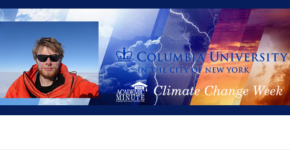
Jonathan Kingslake, Columbia University – Discovering Rivers and Lakes in Frozen Antarctica
There is still a lot to learn about how climate change will affect the world. Jonathan Kingslake, assistant professor in the department of earth and environmental sciences at Columbia University, explores how meltwater may affect the Antarctic Ice sheet and sea level rise. I grew up in Reading UK, 20 minutes by train from London.…
-
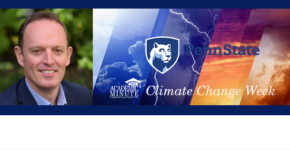
Brian King, Penn State University – Climate Change and the Fight against HIV
How does food scarcity affect the treatment of HIV? Brian King, associate professor in the department of geography at Penn State University, explores this question. Brian King is Associate Professor of Geography and Faculty Associate at the Population Research Institute at the Pennsylvania State University. He is also a 2017 National Academy of Science Kavli…
-
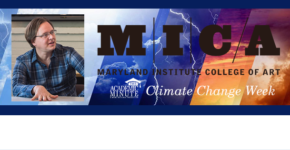
Firmin DeBrabander, Maryland College Institute of Art – Why Climate Change is a Hard Sell in the U.S.
Climate change is no easy sell to many Americans. Firmin DeBrabander, professor of philosophy at the Maryland Institute College of Art, examines the intricacies of selling something that can’t always be seen. Firmin DeBrabander studied Philosophy at Boston College and the Catholic University of Louvain in Belgium, and received his Ph.D. in the field from…
-
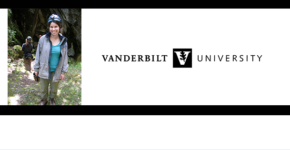
Jessica Oster, Vanderbilt University – Caves Hold Clues to Climate Change
Climate change doesn’t always happen over a long period of time. Jessica Oster, assistant professor in the department of earth and environmental sciences at Vanderbilt University, looks underground for evidence of an abrupt change to the world’s weather. I am an Assistant Professor in the Earth and Environmental Sciences Department at Vanderbilt University. I am…
-
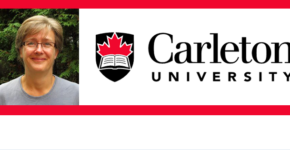
Lenore Fahrig, Carleton University – Habitat Fragmentation
The more habitat you protect, the better, right? Lenore Fahrig, professor of biology at Carleton University, says even a small bit of protected space can be just as helpful as a large one. I am a landscape and conservation ecologist. My students and I study the effects of landscape structure on biodiversity and the abundance,…
-
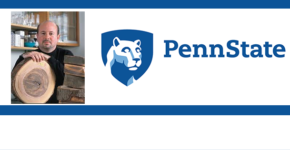
Michael Mann, Penn State University – Extreme Weather and Climate Change
Is climate change causing more extreme weather events? Michael Mann, Distinguished Professor of Meteorology and Director of the Earth System Science Center at Penn State University, delves into this question. Mann is author of more than 200 peer-reviewed and edited publications, and has published three books including Dire Predictions: Understanding Climate Change, The Hockey Stick…
-

Michael Mann, George Washington University – Local Weather and Belief in Climate Change
Does the local weather determine if you believe in global warming? Michael Mann, assistant professor in the department of geography at George Washington University, discusses the difference between climate and weather and how it affects our beliefs. Michael Mann is an Assistant Professor of Geography at The George Washington University. Here he teaches classes on…
-
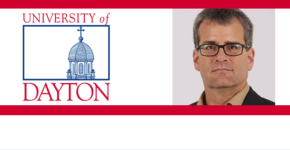
Robert Brecha, University of Dayton – Home Energy Consumption and Solar Power
How do we make our homes more efficient? Robert Brecha, professor in the renewable and clean energy program at the University of Dayton, discusses why low-energy living doesn’t have to be uncomfortable. Dr. Robert Brecha was born and raised in Ohio and attended Wilmington High School and then Wright State University, graduating with a B.S.…
-
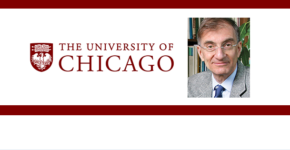
Joel Cohen, University of Chicago – Tornado Outbreaks
Are more tornadoes occurring than ever before? Joel Cohen, Visiting Scholar in the Department of Statistics at the University of Chicago, examines this question. I use mathematics, statistics, and computation to understand populations of single or multiple types of individuals. Quantitative techniques include products of random matrices, non-negative decompositions of nonnegative matrices, random graphs (directed…
-
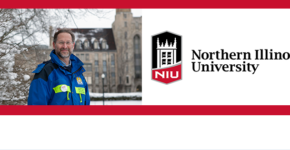
Reed Scherer, Northern Illinois University – Fossils and Rising Sea Levels
Ice sheets are vulnerable to melting in a warming world. Reed Scherer, professor of geology at Northern Illinois University, takes a look back in history to help predict the future. As a youngster in Brooklyn, N.Y., Reed Scherer loved the ocean and the diversity of its creatures. By age 7, he had started collecting fossils,…
